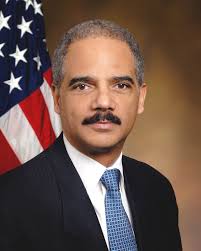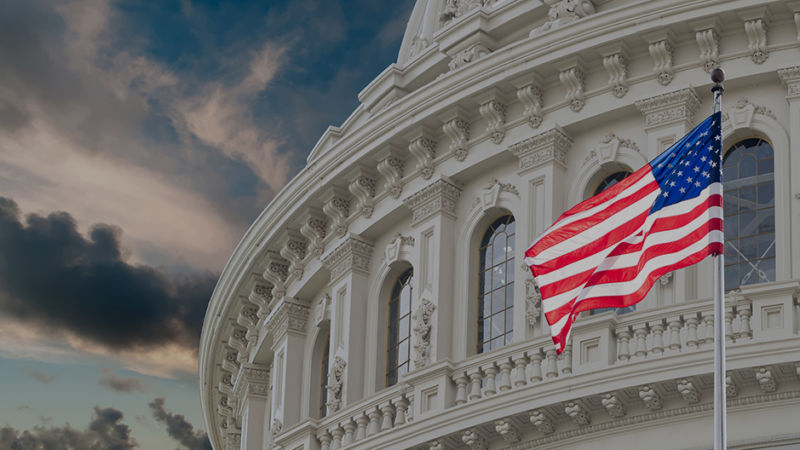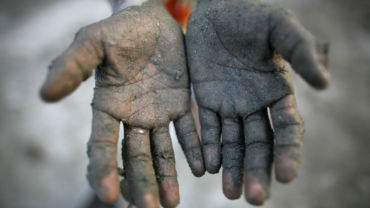Eric Holder, the former U.S. Attorney General, had a simple question for the audience at the conclusion of his recent Thomson Reuters General Counsel’s Office town hall: “What is it you’re going to do to make this nation better?”
During the event, Holder covered a range of topics, including how he’s coping with the COVID-19 pandemic, voting rights and redistricting, the current social unrest driven by the senseless death of George Floyd, and corporate diversity and inclusion initiatives.
Indeed, Holder’s riveting discussion did not leave anyone unsure about where he stands on important and timely issues facing this nation and the world. No matter which side of the political aisle you sit, he underscored fundamental principles and values that are particularly important for professionals and global citizens.
“Are we going to convert this moment into a movement?” Holder asked, saying that it’s heartening to see movements being fueled by young people determined to see things get better. “They want to lead America to a better place,” he added. “And they’re very confident about creating a movement that results in change we haven’t seen in a long time.”
Holder also spoke eloquently and forcefully about our civic responsibility to vote, especially with such a crucial election coming up in less than a month. “People need to be civilly involved and vote in order to maintain the continuation of the American experiment,” he said, adding that people should have a plan for voting and expect there might be problems. “Get your information from reliable sources, anticipate difficulties and falsehoods, vote early, and make a plan.”
The racial reawakening
In the wake of the tragic deaths of George Floyd, Breonna Taylor and other people of color, Holder said here too he is looking to his children and other young people to answer what he calls a “generational racial reawakening.” He believes transformational change will happen at the cross-section of policy and changing attitudes, which is where he believes the Millennial generation will play a critical role. “We need to knockdown legal barriers, of course, but we really you need to change the hearts and minds of people,” he said. “That is the more difficult task.”

That’s why he’s hopeful about young people leading the movement, he said, adding that young people aren’t “bogged down with the baggage that us older people bring after seeing the racial strife in the 1960s.” Indeed, he explained, young people see the world fundamentally different, and need to approach change by combining an effort to change people’s minds with new legislation to address institutional problems. “Systemic racism is something we are still contending with,” he noted. “And unless we recognize it, we can’t address it.”
A new generational racial reawakening can only make a real difference if it successfully moves the needle on change, such as passing new legislation that could make a difference. For example, Holder said he’d like to see a new voting rights act that covers the entire nation, curtailing the restrictive voting laws that exist in some states. Such legislation has been passed in the U.S. House of Representatives and now is awaiting action from the U.S. Senate.
Congress also needs to revitalize the Fair Housing Act, bringing it into the 21st century, and address the great disparities that exist in access to education.
“All of these should encompass a new Civil Rights Act,” Holder said. Of course, he said he knows amid the current climate and with the current administration, such action is unlikely.
Power in diversity
Holder also shared his thoughts about how corporations can address the complex issue of diversity and inclusion within Corporate America. He said he believes that organizational and ethical leadership begins with “tone from the top” and that people must be held accountable for their actions.
When diverse perspectives and opinions are shared, better decisions are made by people that have perspectives that come from more diverse life experiences. This leads to financial and cultural success for corporations. “It’s not a zero-sum game,” he observed. “If women and minorities are doing well, it doesn’t mean white people aren’t doing well. It means the company and everyone else is doing well.”
Finally, Holder left the audience with the question we referenced at the top of this post. “Positive change is not promised,” Holder said. “People like to see the world the way they want it, often instead of how it really is. So, what is it you’re going to do to make this nation better?
“Let’s get out there and change the world.”







